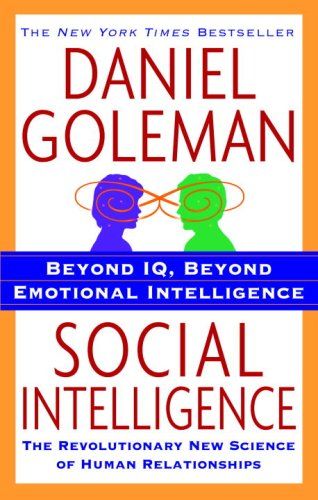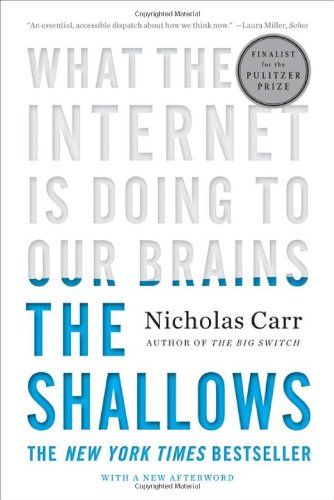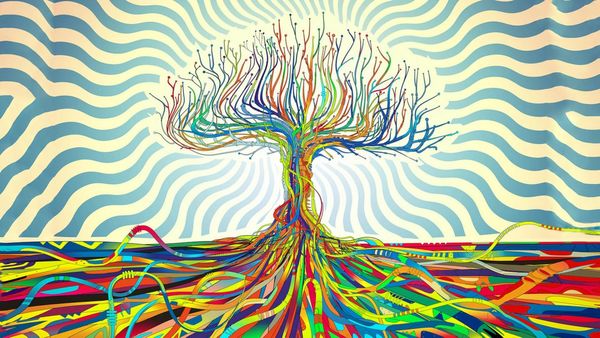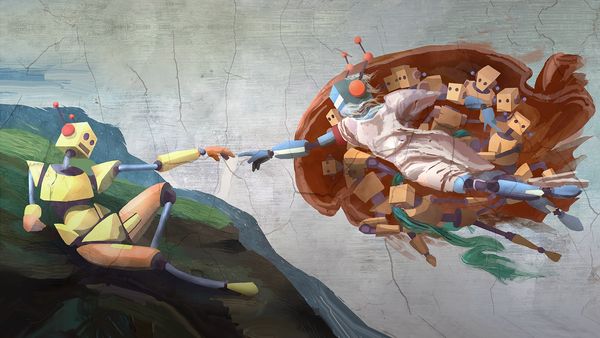Anthony W. Richardson • • 6 min read
How Technology Has Created the Illusion of Socialization

In 1963, as the television started becoming mainstream in homes across America, poet T.S. Eliot warned:
“[television] permits millions of people to listen to the same joke at the same time, and yet remain lonesome.”
Fast forward to today, and the statement still rings true for online socialization. As recent as 2000, Norman Nie, director of the Stanford Institute for the Quantitative Study of Society, found that:
“… for every hour people spent using the internet, their face-to-face contact with friends, co-workers, and family fell by 24 minutes.”
But that’s not all:
Even this benchmark study is currently out of date due to the rapid role of innovation. New research into face-to-face socialization shows that interactions play a key role in reshaping our brain. “Neuroplasticity” allows us to sculpt the shape, size, number of neurons and their synaptic connections. In simple terms, our key relationships can gradually change our neural circuitry. We are collectively modifying not only who, but how we are.

In “Social Intelligence: The New Science of Human Relationships” author Daniel Goleman writes about a phenomenon called “The Emotional Economy” where emotions, attitudes and feelings are truly contagious:
“We take on a toxic state simply by being around the wrong person at the wrong time … like secondhand smoke, the leakage of emotions can make a bystander an innocent casualty of someone else’s toxic state.”
How Your Brain Grows Online
Socialization is what defines our cognitive function and our development at any age due to the neuroplasticity as mentioned above. We are beginning to now recognize the difference between information and conversation. Thankfully, we, as a culture, break free from our virtual agglomeration of names and “likes” that truly have significantly less impact on our lives than real world interactions.
Sherry Turkle, the founder of the MIT Initiative on Technology and Self, remarks on our progression from adolescence:
“… another thing about the Facebook identity and adolescence, which is that many adolescents used to play with identity, play with multiple identities in adolescence, and that used to kind of be their fun, and now there’s one identity that counts — it’s the Facebook identity.
So, is there any hope? Perhaps.
Perhaps.
A recent study from the Internet & American Life Project reveals that teenagers hate Facebook but can’t bring themselves to leave. (Primarily because it is the only remaining grasp at our inherent need for compassion and attention that they have.
Also, 1 in 3 people feel more depressed after visiting the site. (we wrote about it here).
Most modern online technology simply offers more varieties of nominal communication while the content creators are in actual social and psychological isolation. These trends all signal the slow vanishing of opportunities for people to connect. As Goleman writes:
“This inexorable techno creep is so insidious that no one has yet calculated its social and emotional costs.”
More on this topic: How the Internet, Dopamine, and your Brain are Working Together to Screw Your Potential
The Health Cost of Internet Isolation
So we can see how social and personal relationships are important to our development but what about our longevity and wellness? A review of 148 different studies found that people with strong social relationships are 50% less likely to die prematurely. It is just as beneficial to your long term survival as giving up a 15 cigarette a day smoking habit. Furthermore, having low levels of social interaction are equally as detrimental to your health as being an alcoholic, more harmful than not exercising, and twice as harmful as obesity.
Social relationships further improve health by buffering our nervous systems from stressful situations and creating a normalcy of healthy behaviors. Most physiological processes that are linked with disease risk are directly associated with the ties of social relationships. Having a strong social support system is correlated with lower blood pressure, better immune system functioning, wound healing, aging and inflammation. A survey by the National Bureau of Economic Research of 5,000 people found that doubling your group of friends has the same effect on your well being as a 50% increase in income. Yes, you read that right.
We may begin to find that health professionals can determine risks of their patients if they look more deeply at an individual’s social environment. Encouraging friendships to those who are socially isolated could indeed be a newly prescribed medication of the modern world.
One Is Not the Loneliest Number
So let’s talk about size. Many studies have shown that even one close friend is enough to get some of the benefits mentioned above. What about having too many friends? Dunbar’s Number, a theory suggested by anthropologist Robin Dunbar, suggests
“there is a cognitive limit to the number of people with whom one can maintain stable social relationships”.
For most, this number caps at around 150. Exceeding this number is overload and can lead to … you guessed it, stress. The number itself got derived from a study of primates who naturally limit the size of their herds and extrapolated based on our cognitive functions compared to theirs as a species. As ancestors of ours, is there something to be said about limiting our connections? At a minimal consideration, something to think about the next time you look to see how many “friends” you have on Facebook.
Given everything above, the ultimate question is then, do we internally label our online interactions with others as “strong social relationships” … or are we kidding ourselves? Surprise. A study at Oxford has been saying since 2010, (in accordance with Dunbar’s Number) “Facebook Friends Aren’t Real Friends”. You still maintain the 150 and the metrics / site traffic support this. You will find further proof in a 2013 study that revealed a direct correlation between the time spent browsing Facebook to unhappiness.
For real-life socialization tips, read this 25 step guide.
What Happens Now?
Understanding this as a serious problem is the only way to find a serious solution. For instance, consider that we have a Clean Air Act to fight against air pollution. We have several health initiatives to aid in the fight against obesity, including the First Lady’s biceps apparently. Lately campaigns are popping up all over the place to ensure that your teen doesn’t text while driving. If studies have shown time and time again that low levels of socialization are more dangerous than all of these put together will we see a government program that leads us towards positive social interactions? Perhaps technology innovations will take us far from the current habits we have now. Perhaps worse. Who knows if it is possible or even useful to give it consideration at this point?
There are more of us now than ever. In the past 1,000 years alone we have increased the population from 3 billion to 7 billion and yet many people feel more alone than ever. Trends also indicate that there has been a 300% increase in the number of people who claim that they “don’t have someone to turn to in times of stress”. What patterns are we seeing that may be an indication of the future?
If there is hope, you may already be a part of it. Recent trends indicate that the masses are even beginning to adapt an online exodus, albeit slowly. An ABC News article from March 2014 entitled “Farewell Facebook, and Good Riddance” cited studies from the University of Wisconsin & Cornell that online interaction ultimately makes us feel badly about ourselves, envious of others and sad. This study further added that Facebook is a “tedious distraction”, “not viable tool to reconnect” and “creates shallow connections”. The revolution is happening but where is the general to lead the charge?
Related topic: Social Media is Distorting Your Creative Vision, and You Didn’t Even Know
Step 3: Profit?
As a capitalist society, the amount of expense required to launch such an endeavor would not be possible without the ability for it to generate revenue. Beyond that, a government initiative would surely be met with just as much malice as applause by those who think that big brother should always keep their hands out of our cookie jars. It isn’t until they find out that the cookies are poisoned that they begin to say “why didn’t they do something to help us?” However, it is important that the two key takeaways remain: (1) Socialization online is not enough, nor will it ever be and (2) A support system of friends supports all of your other systems. Immune, nervous and otherwise.

The Shallows: What the Internet Is Doing to Our Brains by Nicolas Carr










